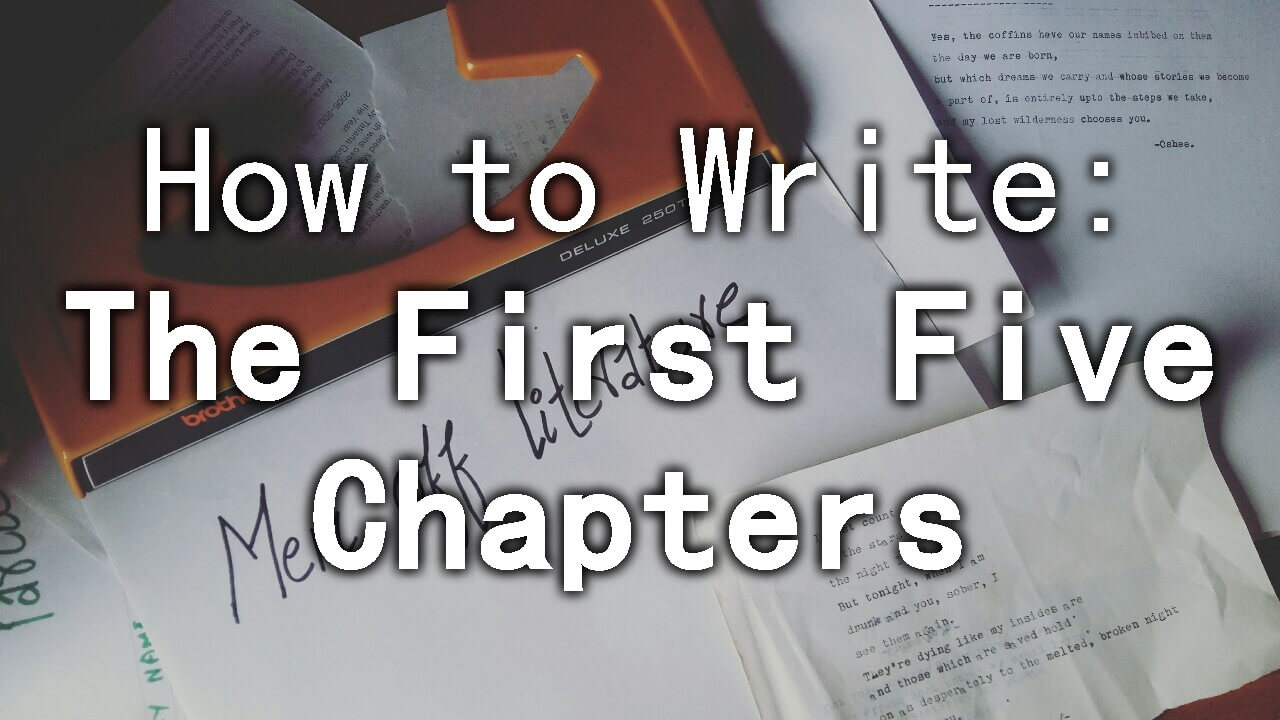When you send a submission, different publishers ask for different things. However, it will usually be at least the first 10,000 words, which should be your first 3-5 chapters. This is what the editor will read and what they will use to decide if your book is any good, and then decide if they want to read the rest of it. And it’s not just the editor; later on, the reader will do exactly the same thing.
Ever flicked through the first chapter in a bookshop or read it on Amazon? What made you want to continue and buy the book? What made you put it down and move on? It’d be your impression from the first chapter or two.
Basically, the start of your book is pretty freakin’ important for giving a first impression.
Have a think about the first five chapters of your book. Have a think about any critique you’ve received. And if you’ve ever uttered any of these phrases or you think they might apply to you, please take a long, hard look at your work…
-
“It gets better later…”
I can and will stop reading. If you haven’t hooked my attention in the first five chapters, then you’ve lost me. The same goes with the longer view; if you don’t grab me with the first book, why am I going to read until Book 5 of your series when the ‘real’ action starts? You need to get me interested now.
-
“This is just the prologue…”
So why are you starting here? Start with the action! Start with the story! Tell me the parts you find fascinating! When you become a millionaire best-seller you can always do a “pre-story” novel or novella or something, but for now – get to the interesting bits.
-
“Oh, you’ve got questions. I just need to explain…”
Are you going to explain this to every single reader of your book? Are you expecting them all to contact the author to receive an A4 sheet of paper with additional information? No. If you need them to know something, put it in your book!
-
“But I have to set up my world and characters…”
Yes, set-up is fine. Info-dumping or pages of character history aren’t. Your world is a framework; it’s not the story. We don’t necessarily need to see how the character got into the fight – let the reader have some questions that could be answered later when he’s been arrested. We don’t necessarily need to know the names of the eight mountain ranges and the natural history of three types of dragons; the hero is more interested in which specific mountain he’s currently slogging up and the characteristics of the type of dragon he’s going to encounter at the top. Tell us what we need to know.
-
“I know it’s not very good, but…”
If you don’t think it’s your best work, if you haven’t put the time and effort in that you think the story deserves, why do you want the world to see it? Editors and publishers want to make your story the best they can; they want to help you present something brilliant to the world! But they can’t do that if you’re not happy with what you’ve produced.
Take time, and make the story as good as you can before you hand it to someone else.






